Here is EVERY Copilot+ PC announced this week, including Microsoft Surface, Dell XPS, Lenovo ThinkPad, and more
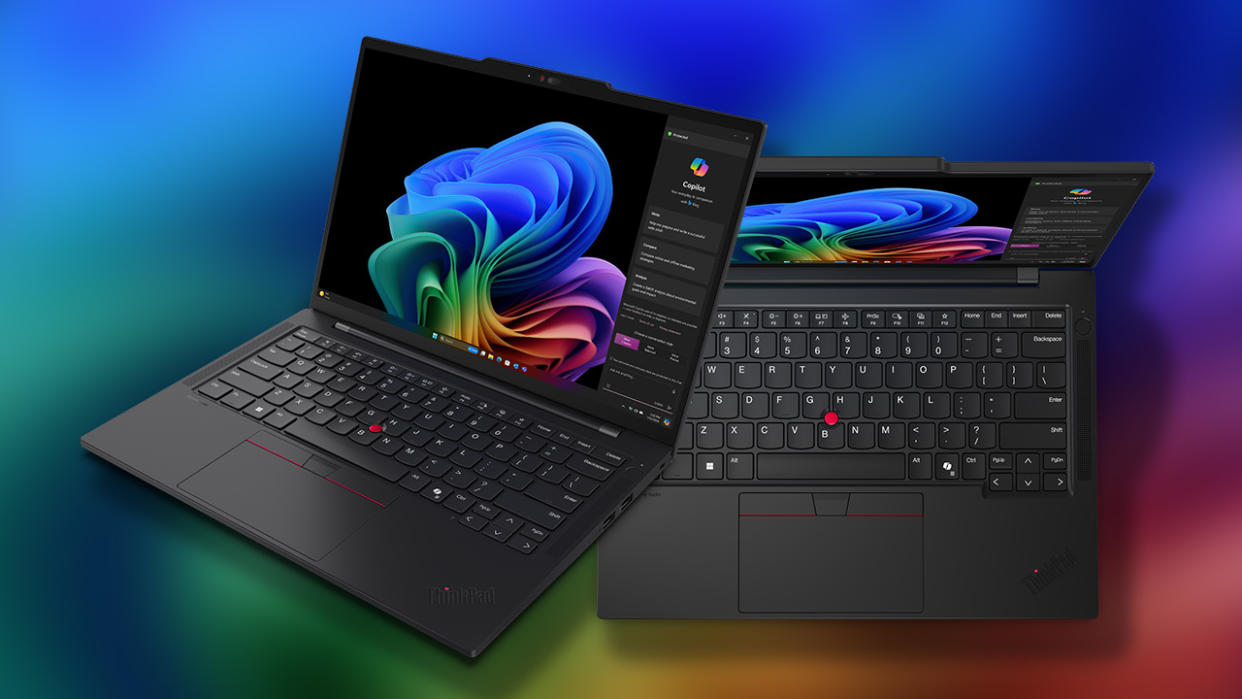
It's been a busy day in the world of Windows laptops. Microsoft, Qualcomm, and a host of major laptop manufacturers teamed up to unveil what our Editor-in-Chief Daniel Rubino calls a "Great Reset" in the Windows PC industry.
Seven major laptop brands, including Acer, ASUS, Dell, HP, Lenovo, Samsung, and Surface unveiled new PCs powered by Qualcomm's Snapdragon X chips. From budget-friendly laptops to flagship 2-in-1s meant to illustrate what a Copilot+ PC can be, there's a lot to digest. We have separate pieces for each laptop announced today, but with so many computers hitting headlines, a quick rundown is in order.
Surface Pro 11 and Surface Laptop 7
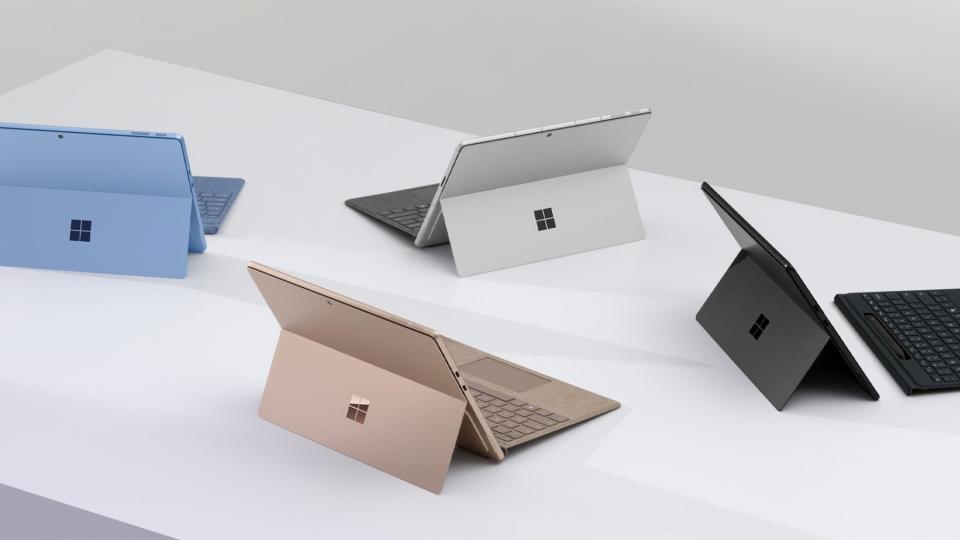
Arguably the biggest announcements of the day were Microsoft's new Surface Pro and Surface Laptop (officially known as the Surface Pro 11th Edition and Surface Laptop 7th Edition, respectively). Both those devices showcase what Copilot+ PCs can be. They run on Snapdragon X processors, are designed with AI in mind, and have the latest features to utilize their high-end specs.
The Surface Pro 11th Edition finally has configuration options with OLED displays. The convertible PC also runs on Snapdragon X processors, supports plenty of AI features, and even has a new keyboard option. The Surface Pro Flex Keyboard costs $349.99 and has a haptic trackpad, carbon fiber reinforcement, and can connect wirelessly. Add in some new color options, and you have a worthy flagship to usher in the deluge of Copilot+ PCs.
Microsoft made more visible changes when designing the Surface Laptop 7th Edition. The newest Surface Laptop has thinner bezels and rounded corners on its display. Like its convertible sibling, the Surface Laptop 7th Edition runs on Qualcomm's new Snapdragon X Elite or Snapdragon X Plus. Those chips power a plethora of AI features and promise better battery life than their Intel counterparts. You can preorder the Surface Laptop 7th Edition in either 13.8-inch or 15-inch variation.
Acer Swift 14 AI
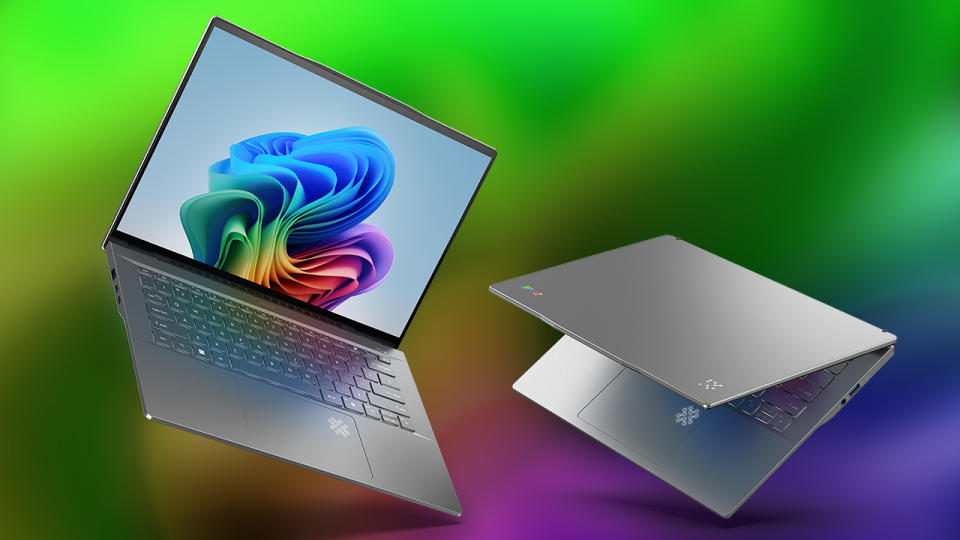
The Swift 14 AI is Acer's only new Copilot+ PC announced today, but its starting price of $1,099 makes it a strong contender for anyone who wants to test out the new Snapdragon X Elite and X Plus CPUs without breaking the bank. That price tag needs to be placed in context, because we normally wouldn't call a $1,099 laptop a budget-friendly PC.
Copilot+ PCs have minimum requirements higher than what more affordable PCs ship with, such as 16GB of RAM. They also feature Qualcomm Snapdragon X processors, which are the latest innovations from Qualcomm. Those chips have been the center of months of hype, and Microsoft literally optimized Windows 11 to work with them. That level of tech has a cost. While Qualcomm's new chips are competitively priced compared to their Intel counterparts, they are still new processors.
The Acer Swift 14 AI is available with either a Snapdragon X Elite or a Snapdragon X Plus, both of which power the new AI features exclusive to Copilot+ PCs. A QHD+ display with a 120Hz refresh rate and 100% sRGB color, a 1440p camera, and a 75Whr battery round out an impressive spec sheet.
ASUS Vivobook S 15
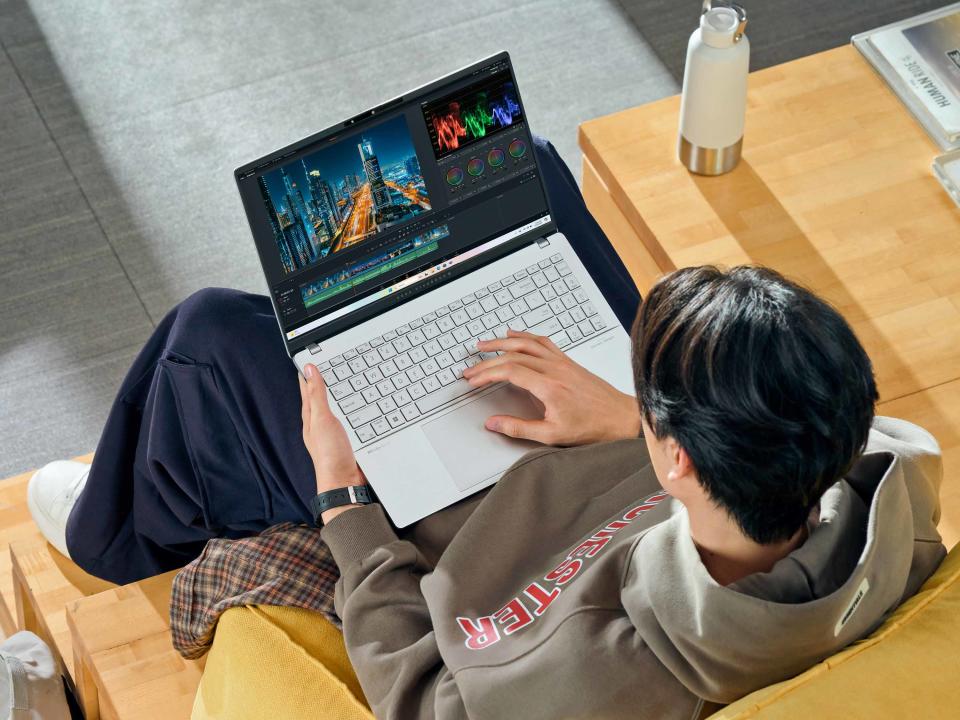
The ASUS Vivobook S 15 features a 70Whr battery. When paired with a Snapdragon X Elite processor, that battery can get up to 18 hours of life, according to ASUS. Anything close to that figure in real-world usage would be impressive, especially when you consider the fact that the Vivobook S 15 has a 15.6-inch display with a 3K resolution and a 120Hz refresh rate. Those aren't the types of laptops that get 18 hours of battery life, at least before the new "Great Reset" in the Windows PC industry.
The Vivobook S 15 includes two USB4 ports that support fast charging, powering 4K external displays, and transfer speeds of up to 40 Gbps. The laptop also features Wi-Fi 7, which supports speeds up to 5.8 Gbps.
The first Copilot+ PC from ASUS looks to deliver excellent battery life and the plethora of AI features currently exclusive to select PCs with a Snapdragon X processor inside.
Dell XPS, Inspiron, and Latitude
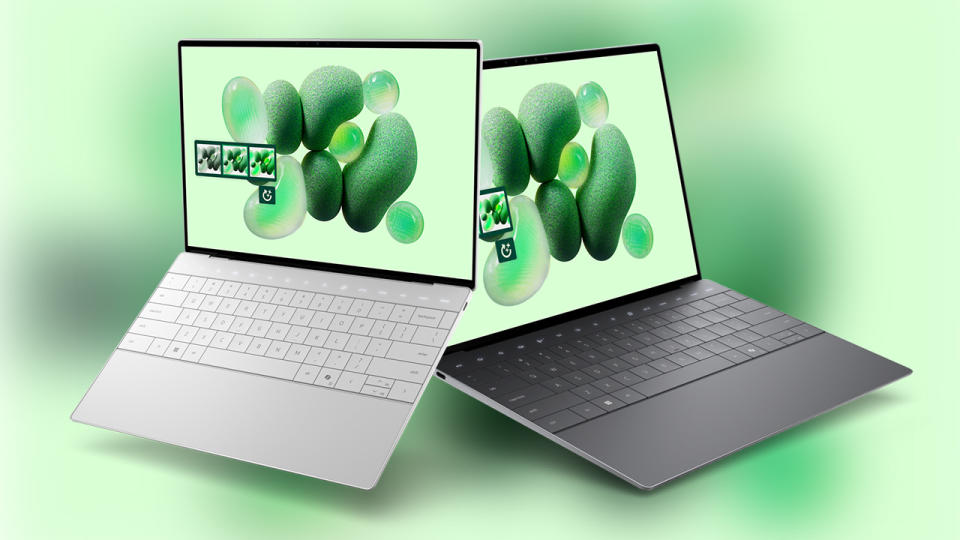
Dell revamped its XPS 13's design earlier this year, but now the PC maker has shaken things up on the inside of its thin-and-light laptop. The XPS 13 (9345) runs on a Snapdragon X Elite or Snapdragon X Plus. Those processors power the new AI features highlighted by Microsoft, including Windows Studio Effects. Of course, the PC also has a Copilot key, which is a requirement to be called a Copilot+ PC by Microsoft.
The Arm-powered XPS 13 pairs Dell's futuristic vision for its XPS lineup that finally hit mainstream this year with Qualcomm's latest chips. Dell sold the XPS 13 alongside the XPS 13 Plus for a while, but the company has since shifted its entire XPS 13 lineup to have the more modern design. That design includes a zero-lattice keyboard, haptic trackpad, and a row of haptic function keys. Now, the XPS 13 will be available with that refreshed design and the benefits of Arm computing. Of course, Dell will continue to sell Intel versions of the XPS 13 for those who prefer those chips.
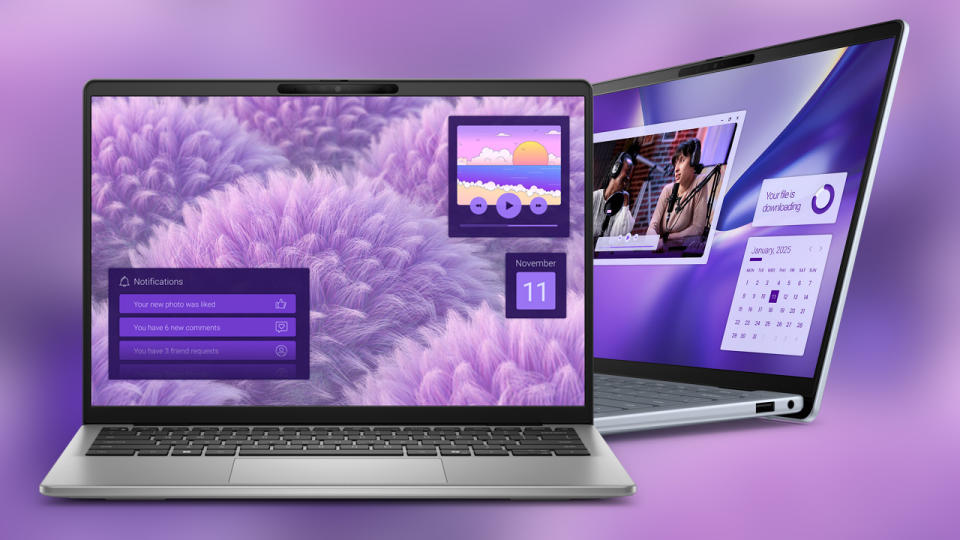
While not as flashy as the XPS 13 announcement, Dell also shared that new Inspiron 14 and Inspiron 14 Plus laptops are on the way. Full specs of those AI PCs are still to come, but we know that they will run on a Snapdragon X Plus processor.
The Inspiron 14 Plus has a 14-inch display with a 2560x1600 resolution and a 16:10 aspect ratio. That screen reaches 400 nits of brightness and supports touch. The laptop comes with 16GB of RAM and either 512GB or 1TB of SSD storage. Support for Wi-Fi 7 and Bluetooth 5.4 give users solid wireless connectivity options and two USB-C 4.0 Gen 3 ports, a USB-A port 3.2 Gen 1 port, and a microSD card handle the physical connections. Dell hasn't shared battery life figures for the Inspiron 14 Plus yet, but the PC has a 54Whr battery.
HP OmniBook X and EliteBook Ultra
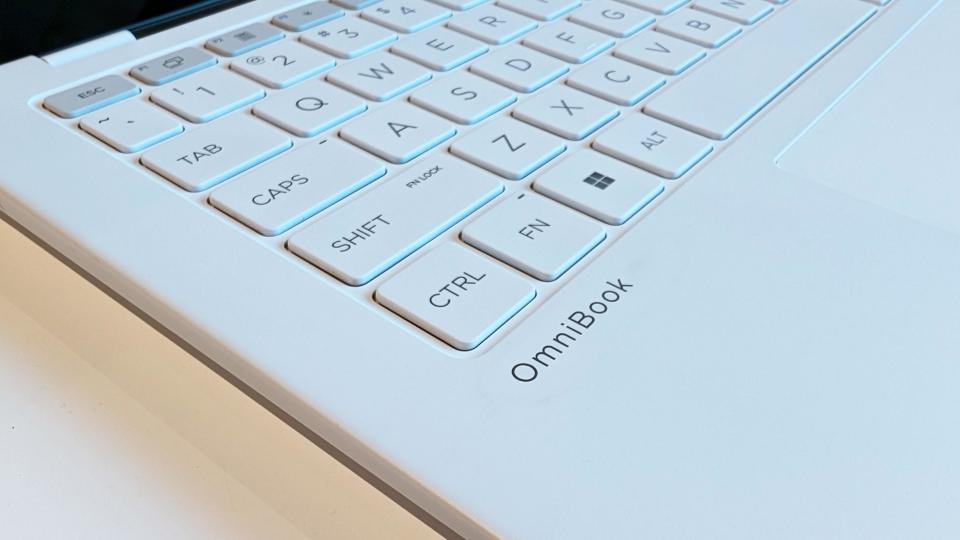
HP made waves this week by revamping almost its entire lineup, at least when it comes to naming. The company killed off all of its consumer and commercial PC branding, including Spectre, Pavilion, Dragonfly, and more. HP shifted to a new Omni brand for its consumer PCs and a new Elite brand for its business laptops (HP OMEN remains unchanged branding wise). HP took the opportunity to realign its PC families as AI PCs are thrust into the mainstream.
"As AI PCs quickly transform the personal computing landscape, we saw an opportunity to take increasingly complex technology and communicate it in a strikingly simple way," said HP.
There is still some subtlety in the branding to make it clear what type of PC you're looking at. HP will sell OmniBook and EliteBook laptops, OmniStudio and EliteStudio All-in-Ones, and OmniDesk and EliteDesk desktops. All of those categories will have different tiers as well. Altogether, there's a lot to learn when it comes to buying HP PCs going forward, but the idea is that you'll learn the naming convention once and then know HP's entire portfolio going forward.
HP kicked off its rebranding with the OmniBook X AI PC and HP EliteBook Ultra G1q AI PC, both of which are Copilot+ PCs running Snapdragon X processors.
Lenovo ThinkPad T14s and Yoga Slim 7x

Business users who want a Copilot+ PC can check out Lenovo's new ThinkPad T14 (Gen 6). Lenovo focused on professionals when making the latest laptop in its ThinkPad T14 series. The business laptop runs on a Snapdragon X Elite and has up to 64GB of RAM and 1TB of storage. The PC is available with up to a 2.8K OLED display with 100% DCI-P3 color, Dolby Vision, HDR True Black 500, and EyeSafe certification.
Lenovo claims "multi-day battery life" for the ThinkPad T14 (Gen 6), which would be handy for business users on the go. Professionals will likely appreciate the 1080p camera with human presence detection and a range of ports that includes dual USB4, dual USB-A, HDMI 2.1, and a 3.5mm audio jack.
The ThinkPad T14 (Gen 6) has more than one hundred ISV certifications for enterprise software and apps and several security features that people have come to expect from ThinkPad PCs.
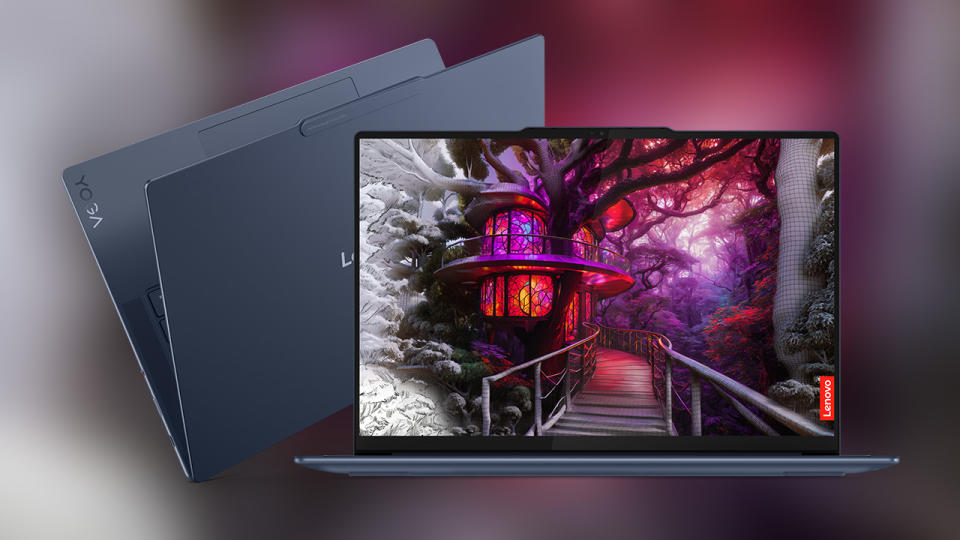
Over on the consumer side of things, Lenovo unveiled the Yoga Slim 7x. As its name suggests, the laptop is rather thin, measuring 12.8 x 8.86 x 0.51 inches. At 2.82 pounds, the Yoga Slim 7x should be easy to carry in a bag.
Powered by the Snapdragon X Elite, the Yoga Slim 7x has a 3K OLED touch screen with a 90Hz refresh rate. That screen can reach an impressive 1,000 nits of brightness, which is outstanding and should be visible outdoors. That screen is also DisplayHDR TrueBlack 600 certified and supports Dolby Vision.
Sticking with the impressive specs theme, the Yoga Slim 7x has a 70Whr battery despite its thin form factor. While there are laptops with larger batteries out there, they are generally thicker devices. The Yoga Slim 7x running on an Arm processor should help the PC get the most out of its large battery.
Three USB-C 40Gbps w/PD 3.1 DP 1.4 ports, Wi-Fi 7, and Bluetooth 5.3 provide a nice range of connectivity options as well.
The Yoga Slim 7x will start shipping in June 2024 with a starting price of $1,199.
Samsung Galaxy Book4 Edge

Samsung announced the Galaxy Book4 Edge this week. Preorders are already open for the 14-inch and 16-inch laptops, with prices starting at $1,350. If you preorder one of the new laptops, you'll also get a Samsung TV for free, which is a nice bonus.
The Galaxy Book4 Edge runs on a Snapdragon X Elite processor and features a sleek design. At 0.51 inches thick, the Galaxy Book4 Edge is even thinner than the Lenovo Slim 7x. Both sizes of the laptop are light as well, with the 14-inch model coming in at 2.6 pounds (1.18kg) and the 16-inch model weighing 3.4 pounds (1.54kg).
Both laptops have 16:10 displays with a 2880x1800 resolution. Those screens are AMOLED and have a refresh rate of 120Hz. They also support VRR (variable refresh rate).
The GalaxyBook4 Edge looks like a more premium Copilot+ PC. In addition to its AI features and promise of good battery life, the laptop benefits from the ever-growing partnership between Samsung and Microsoft that helps connect phones and PCs.
